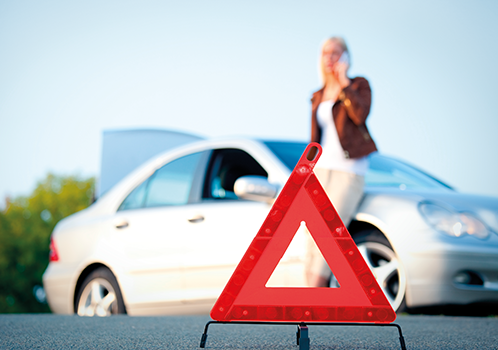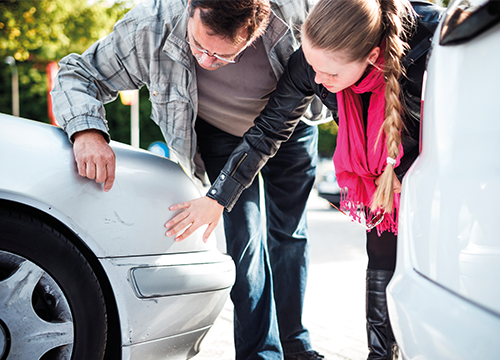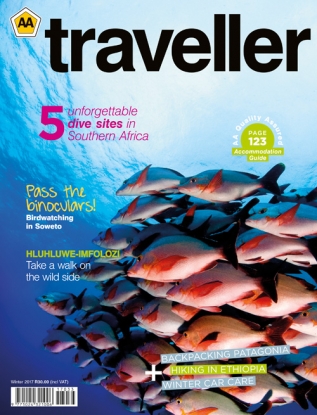Car accidents – big or small – are a shock to the system, and poor decisions at the scene can make matters worse. Mike Monk explains how to be prepared
From a fender bender to a fatal multi-vehicle pile-up, being involved in an accident is one of the most stressful incidents any motorist can experience. Of course, some people are naturally better at keeping calm in a crisis, but the sudden and stressful nature of the event can blur the senses and impair your reaction. You cannot change human nature, but you can better equip yourself to safely and legally deal with a car accident and its aftermath.
It’s not practical to discuss every type of accident here; instead, these are general guidelines of what to do after the majority of incidents. Keep a copy of this article in your car as a reference. Your insurance company may provide you with a basic checklist or report form, and it’s sensible to keep that in the vehicle too. Also make sure you have a pen and paper in the cubbyhole.
If your vehicle is still mobile after an accident
You have had an accident. Your car seems to be fine and you’re not hurt, but you can’t just drive away. Instead, pay attention to the following:
• Stop immediately and park in as safe a place as possible. It is an offence not to stop. Switch off the ignition and activate the hazard lights. Place a warning triangle a sensible distance behind the accident to alert approaching traffic.
• Stay calm and assess the situation to see if anyone needs help. Check that no one involved leaves the scene. Make a mental note of anyone doing so: their appearance, their vehicle registration number, etc.
• Very importantly, at this point do not talk about the incident to anyone else involved, including any possible witnesses. Certainly do not accept any liability; you first need to report the incident to the police and to your insurance company.
• If anyone is injured, call the police and ensure the appropriate emergency service is summoned. It’s a good idea to save the emergency call-centre number on your cellphone.
• Once the scene has settled exchange details with all other parties involved – this is required by law. The details required are: each driver’s name, ID number, address, telephone number and insurance details. Make a note of any other details that you think are relevant: Is there a suspicion the other driver is under the influence of alcohol or drugs? Were they possibly using a cellphone? Were the vehicle’s lights working?
• Make a note of the date, time and location. For each vehicle involved in the accident, record the make, model and colour, registration number and the name of the owner (if they are not the driver). Also write down the contact details of any witnesses, the name of any attending traffic officer and their station, and the name and phone number of the towing operator (if one is used).
• Create a visual record of the scene by using your cellphone to photograph it from as many angles as possible (or make a sketch). Also take photos of all damage incurred.
• If the accident was minor and there were no injuries but you have damage to your vehicle, it must be reported to the police within 24 hours. You will not be able to claim from your insurer unless you have a police case number.
• As soon as possible after the event, notify your insurance company and provide all the details, irrespective of whether or not you will be making a claim. It is important that you do not accept any liability until after you have reported the incident to your insurer.
If your vehicle is immobile and requires a tow truck
If you need the services of a tow truck, there are some more pointers to bear in mind.
Firstly, the responsibility for moving any obstruction to traffic rests with the police department, not with the towing operator. Your insurance company may insist you use a preferred operator, in which case it’s important you have the service’s phone number.
All members of the AA have towing facilities available to them – simply call 0861 000 234 or 083 843 22 for assistance. Your insurer or medical-aid society will often give you a windscreen sticker with towing instructions, as well as a medical call-centre number if you have a particular condition that should be recognised in case of injury.
Secondly, be aware that no towing operator or police officer has the right to force you to use a specific towing operator (a charge can be laid against the officer if they do).
Before you allow anyone to touch your vehicle, do the following:
• Write down the towing operator’s trading name, the driver’s name and their contact details.
• Establish where your vehicle will be taken for repairs or storage.
• Get a written estimate of the cost to move and store your vehicle.
• Remove all your personal possessions and other loose items from the vehicle.
Do not allow the operator to hitch or lift your vehicle until you’ve dealt with these points. Once they have hooked up your vehicle to their tow truck or started salvage work, they are entitled to a fee.
If a third party is involved
Third-party insurance covers you against claims made by others against you including costs relating to death, injury and damage, as well as any legal costs that could be claimed from you. This coverage is important if someone else’s car is involved in the accident or if a passenger (in your car or the other one) is injured.
Besides reporting the incident to your insurer and the police, also send all of the details to the Road Accident Fund within 14 days to further cover yourself against any possible claims related to death or injury. You’ll find the necessary form and information at www.raf.co.za. Click on ‘Claims’ and then ‘Claim Forms’. Alternatively, you can call the RAF on 0860 23 55 23 for more information.
OneLaw
As one of SA’s most successful debt-collection facilitators, OneLaw now specialises in the recovery of expenses arising from vehicle-accident claims, where a third party is to blame.
It facilitates the collection process on behalf of attorneys against third parties, where the client is normally not insured or the damage is not covered by insurance.
www.onelaw.co.za
Photography Gallo/Gettyimages
(This article was first published in the autumn 2014 issue of AA traveller magazine)





